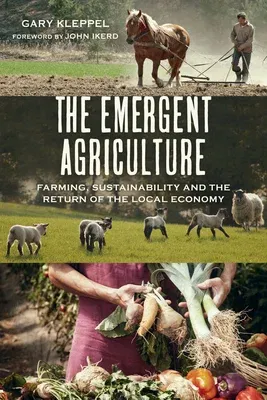Local, diverse and resilient - the new culture of food
Long embraced by corporations who are driven only by the desire for
profit, industrial agriculture wastes precious resources and spews
millions of tons of greenhouse gases into the atmosphere each year,
exacerbating climate change and threatening the very earth and water on
which we depend. However, this dominant system, from which Americans
obtain most of their food, is being slowly supplanted by a new paradigm.
The Emergent Agriculture is a collection of fourteen thematic essays
on sustainability viewed through the lens of farming. Arguing that
industrial food production is incompatible with the realities of nature,
science, and ethics, this lyrical narrative makes the case for a locally
based food system which is:
- Stable in the face of economic uncertainty
- Resilient in the face of environmental variability
- Grounded in stewardship of the land, on attaching value to food and
the craft involved in producing it, and on respecting the dignity of
farmers, consumer, s and livestock
A revolution in food production is underway. Written from the vantage
point of an ecologist who is also a farmer, The Emergent Agriculture
is essential reading for anyone interested in food security and the
potential for growing local economies. Food for thought about the future
of food.
Gary Kleppel is a professor of biology at the SUNY Albany, where he
focuses on sustainable agriculture, conservation-based grazing, and the
ecology of human-dominated landscapes. He and his wife Pam are owners of
Longfield Farm, where they produce grass-fed lamb, wool, free range
chickens and eggs, and artisanal breads

